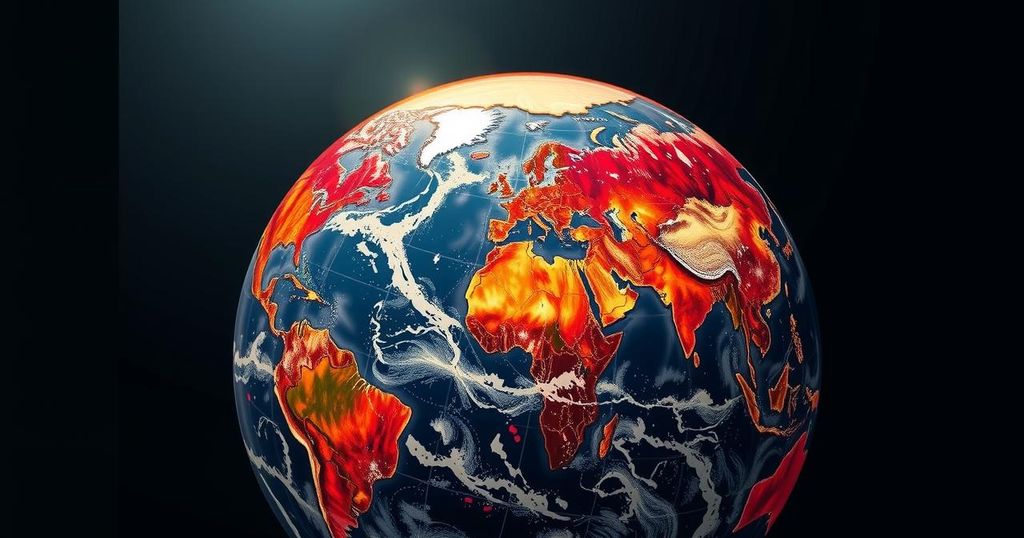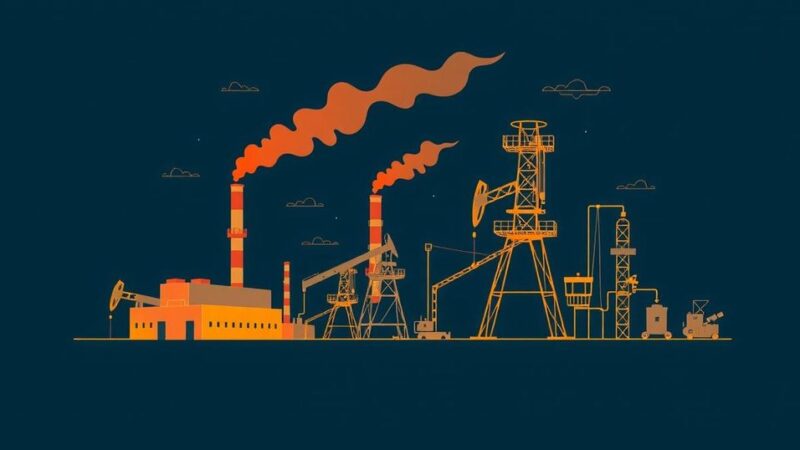The report articulates the escalating threats posed by climate change, highlighting significant global temperature increases and extreme weather occurrences. It underscores the urgent need for robust emissions reductions, enhanced climate finance, and equitable policies to facilitate effective climate action. The insights aim to inform global discussions at upcoming climate negotiations, emphasizing the importance of immediate and collaborative responses to mitigate the impacts of climate change.
The latest report titled “10 New Insights in Climate Science,” issued by Future Earth, The Earth League, and the World Climate Research Programme, underscores the accelerating threat posed by climate change. With contributions from 80 researchers across 45 nations, the annual publication highlights critical findings aligned with the current global temperature trajectory. As of 2023, the global average temperature exceeded pre-industrial levels by 1.45 degrees Celsius, while sea temperatures have reached unprecedented highs for over a year, showcasing alarming deviations from international climate targets established under the Paris Agreement. The Global Stocktake conducted at COP28 has outlined necessary measures to reverse current trends. To limit warming to 1.5 degrees Celsius, emissions must be reduced by 42% beyond current projections by 2030, whereas a minimum 28% drop is required to adhere to a 2-degree Celsius target. The report extensively discusses the surge in extreme weather events attributed to climate change. For instance, the likelihood of wildfires in Canada has doubled, heatwaves in South and Southeast Asia have increased thirtyfold, and extreme rainfall events are now 50 times more likely and 50% more intense. Key insights include the concerning levels of atmospheric methane, a potent greenhouse gas with a shorter atmospheric lifespan, and the interplay of declining aerosol concentrations, which lead to potential short-term warming despite being beneficial for long-term air quality. Furthermore, the report emphasizes that hundreds of millions reside in highly unstable climate conditions, especially in lower-income regions, exacerbating risks related to health and displacement associated with extreme climate events. Economic ramifications stemming from natural disasters, such as escalating costs linked to intensified El Niño events, highlight the need for increased climate financing aimed at bolstering the resilience of essential infrastructure. The continued degradation of vital ecosystems, particularly the Amazon rainforest, could accelerate climate-related disasters, necessitating urgent restoration efforts. The implications for urban areas, which significantly contribute to greenhouse gas emissions, are profound. The shift towards a clean energy economy necessitates robust policy measures, including support for the mining and logistics of transition minerals vital for renewable energy initiatives. Finally, the report advocates for equitable climate policies that are perceived as fair and just by affected populations to ensure widespread acceptance and community mobilization in the fight against climate change. Authors aim to influence key negotiations at COP29 in Baku, Azerbaijan, promoting substantive financial commitments and actionable objectives for reducing methane emissions and enhancing the clean energy transition.
The report is part of a broader dialogue on climate change and its dire implications for ecosystems, human health, and global economies. It seeks to provide a comprehensive overview of recent climate science, stressing the importance of responsive policy frameworks to mitigate the ongoing crisis. Given the persistent rise in global temperatures and the increased likelihood of severe weather events, effective actions are paramount to avert catastrophic outcomes as framed within international climate agreements such as the Paris Accord. The insights drawn from the report are valuable for stakeholders, policymakers, and researchers working towards sustainable climate solutions.
In conclusion, the “10 New Insights in Climate Science” report serves as a critical call to action regarding the impending threats of climate change. It emphasizes the necessity for drastic reductions in greenhouse gas emissions, enhanced climate resilience efforts, and equitable policy development to safeguard both the environment and vulnerable populations. The findings present a clarion call for international cooperation and commitment to effective climate action, especially in light of impending meetings such as COP29.
Original Source: impakter.com






